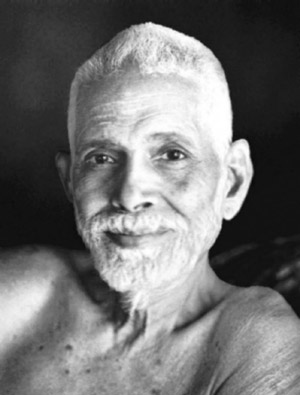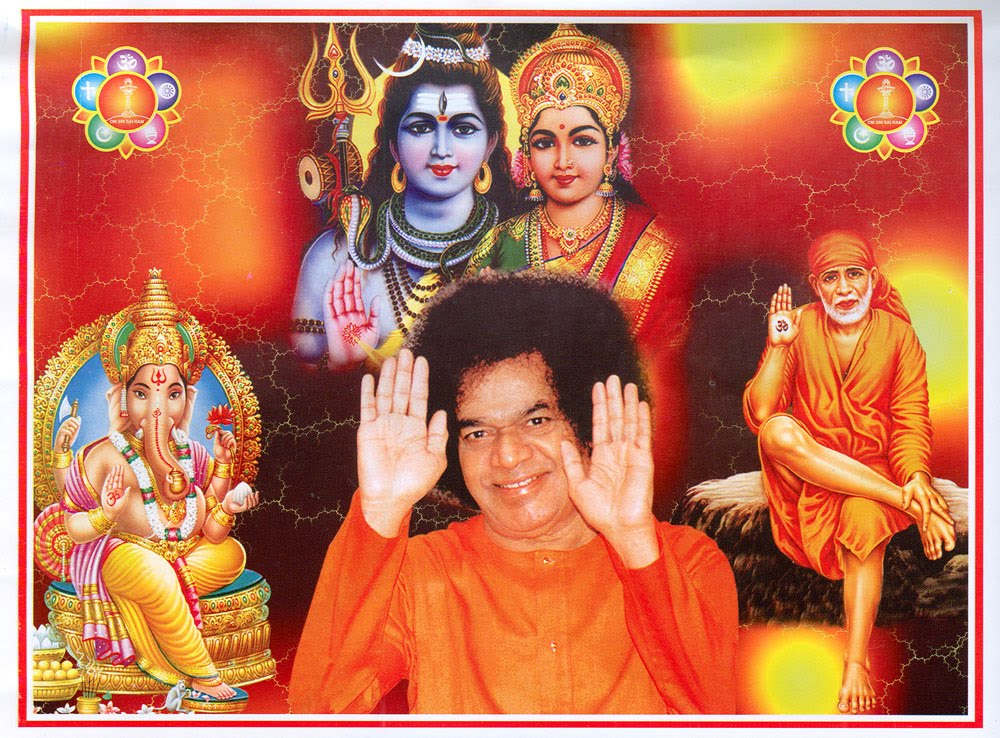spiritual questions and answers PART 11 By Prof. G. Venkataraman | ||
We have now meticulously compiled and categorised these questions, and Prof. G. Venkataraman has offered to answer all these queries in a structured and systematic way as a series on Radio Sai as well as in H2H. In this way, these answers now remain always on our website as a ready reckoner on spiritual doubts.
This is a suitably adapted transcript of our radio series bearing the same name. To listen or download the talk from our website, please visit www.radiosai.org/qa
ALL ABOUT KARMA – Part-2
Loving Sai Ram and greetings from Prashanti Nilayam. This issue’s question bag brings us two questions that we have already dealt with before. Nevertheless, I shall consider them so that some residual issues can be disposed off. After that I shall take up fresh questions.
The first two questions are:
QUESTION 1: Is God the Eternal Doer or the Eternal Witness? When does He intervene in the Destiny of men?
QUESTION 2: What is the Law of Karma and rebirth?
As I told you before, in the ultimate analysis, there is only God and nothing else. Which means that all that we see here in this world as diversity is really God in innumerable disguises. At the same time, these different disguises DO have an empirical reality that we HAVE to deal with and keep in mind. On that basis, I say once more that the issue of whether God is this or that depends entirely upon the individual concerned.
Every individual is subject to ego, and this is to some extent inevitable. Thus, unconsciously or otherwise, the individual trips the ego switch within him or her as the case may be. Once the person does so, God would appear as the Eternal Witness. You may ask: “How come?” The answer to that is simple. When out of his ego a person says, “This success of mine did not come from nowhere; I worked hard for it,” or, “This is my hard earned money, and I can do what I want with it,” and so on, it is clearly his ego speaking. If a person insists on speaking like that, and many do that, then God says, “Very good dear one, if you want the credit, you can have it! You are entitled to feel that you are indeed the doer. As for Me, I shall simply watch what you are doing.” Thus, God wears the hat of the Eternal Witness, you might say, and this He does because of the choice made by the person concerned. It is important to note that the “role” of God is decided by man and not by God!
 |  |  |
I hope you understand that there can be only one doer; if man assumes the doer-ship, then he remains in that seat. He cannot, having assumed the doer-ship role, start complaining when the going gets rough by lamenting, “Oh God, why are You doing this to me? What wrong have I done, etc.?” If a person gets into the driving seat and there is an accident, then the driver has to own responsibility for it – that is clear, is it not? In the same way, a person cannot, as many seek to do, take the credit for all successes, and cry foul when the things don’t work out, blaming it all on God. One cannot have it both ways – that is the point I am trying to make, and I guess that is easy to understand.
On the other hand, let us say that a person surrenders totally to God, and I mean totally. By the way, Swami has explained what is meant by total surrender; among other things, it means we completely relinquish the doer-ship role and hand it over to God. In such a case, the Lord now wears His other hat and becomes the Doer. And when He does that, we escape many a danger that we might otherwise have encountered.
In short, the question of what role is played by God is actually decided by us and NOT by God as we commonly seem to imagine. This is a very important point and I do hope you appreciate what I am trying to tell you. Please note that once we take a particular stand, be it as a doer or as one who surrenders, then the role played by God remains fixed.
What happens usually is that people automatically slip into the role of the doer and certainly become very conscious of it when there is success; once that happens, God assumes the role of a Witness. We cannot, when success suddenly deserts us, expect God to switch roles. That is what people expect but that is not allowed! I hope you are able to understand that.
God will change His role only if we are able to surrender totally, like Vibhishana did to Rama (in the sacred epic Ramayana). In short, we cannot maintain status quo on our side, while asking God to keep changing His stance to suit our convenience – not possible, nor allowed!l
What happens usually is that people automatically slip into the role of the doer and certainly become very conscious of it when there is success; once that happens, God assumes the role of a Witness. We cannot, when success suddenly deserts us, expect God to switch roles. That is what people expect but that is not allowed! I hope you are able to understand that.
God will change His role only if we are able to surrender totally, like Vibhishana did to Rama (in the sacred epic Ramayana). In short, we cannot maintain status quo on our side, while asking God to keep changing His stance to suit our convenience – not possible, nor allowed!l
Let me now move to the second question, which is:
 |  |  |
What is the Law of Karma and rebirth?
This again is something I have dealt with before and I shall give a brief summary of what I said earlier. The Law of Karma is nothing but what Swami often refers to as Reflection, Reaction, Resound. That is to say, we are accountable for every action we perform and we have to face the consequences, depending upon the nature our past actions. If we have done something good, we earn what is called merit or punyam, as a result of which good things happen later. If, on the other hand, we have a bad track record, we earn what is called papam which is basically negative points, implying of course some sort of retribution.
Reflection, Reaction, Resound. That is to say, we are accountable for every action we perform and we have to face the consequences, depending upon the nature our past actions. |
OK, one accumulates good as well as bad points; when does the payoff occur? The answer is that it could occur over a wide time span, that is to say, sometimes almost immediately, sometimes after a delay which could be short or even long. Most people understand this to some extent. However, what foxes most people is the carry over, that is to say, settlement of accounts not in the present birth but in a later birth.
The problem arises this way: There is a person, who by all accounts is a good man, very dharmic (righteous) and all that. Yet, that man has a miserable time, with life being very difficult for him in many ways. In Vedanta, this is explained by saying that the problems this man is facing reflect the settlement of past karmic debt. However, many simply do not accept that. They say, “Why should one suffer now? I am good now, and I cannot be made accountable for something that does not concern me!” Basically, this is because people are seldom able to see their accountability stretching across births. They argue, “How do I know for sure that there is rebirth in the first place? This is all a cock and bull story! I don’t buy it. Life is unfair, God is unfair,” and so on.
 | |
Well, this is a point on which I am afraid I cannot convince anyone directly; all I can say that according to Swami, there IS a carryover of accounts and He has drawn attention to it many, many times.
Swami says [in effect], “When a person dies, he takes nothing with him except an invisible necklace made up of Papam and Punyam. And when the person is born again, he brings nothing with him, except this invisible necklace, which is a statement of accounts of past antecedents! That is the way Destiny operates, and one simply cannot do anything about it. If one wants to get rid of the necklace, then you have to follow Swami’s various teachings, that is all!” That is the Divine statement and prescription, and I shall leave it there.
Swami says [in effect], “When a person dies, he takes nothing with him except an invisible necklace made up of Papam and Punyam. And when the person is born again, he brings nothing with him, except this invisible necklace, which is a statement of accounts of past antecedents! That is the way Destiny operates, and one simply cannot do anything about it. If one wants to get rid of the necklace, then you have to follow Swami’s various teachings, that is all!” That is the Divine statement and prescription, and I shall leave it there.
Let me turn to the next question, which belongs to a different category altogether – by the way, this and some of the questions that follow are all about God. Here is the first one in this new category.
QUESTION: Why does God incarnate instead of sending His Messengers?
I don’t know who sent this question but I personally find it a very interesting one. Actually, God likes sending Messengers; in fact, He keeps sending a host of them and they show up all over the place. Every saint and a holy person is a Messenger of God, and if you look at it that way, you would find there are Messengers belonging to all faiths. What I mean is that there are Christian saints and holy men, Muslim saints, mostly Sufis, most venerable Buddhist monks, and so on. Usually, they have a relatively small reach out, but they certainly do their job alright.
When the observance of Dharma touches an all-time low or approaches such a state, then God probably says, “Maybe sending Messengers alone is not enough, and it is time for Me to put in a direct appearance.” |
Although God does send these “Spiritual doctors” all the time, humans have a great talent to slip easily into ways that are not Dharmic. I might point out, that God even sent His son Jesus, and you can judge for yourself to what extent the teachings of Jesus are being followed these days, even by people calling themselves Christians. So the first point we note is that God does keep sending Messengers all the time. However, over a period of time, it turns out that all this is not enough and something more is called for. When the observance of Dharma touches an all-time low or approaches such a state, then God probably says, “Maybe sending Messengers alone is not enough, and it is time for Me to put in a direct appearance.”
 | |
To understand what difference this makes, we have to take note of some important facts. Consider a saint like Ramana Maharishi, for example. He was an excellent Messenger no doubt and people did come in large numbers to have his Darshan. But where his teachings were concerned, since they revolved largely around Advaitam, the Philosophy of Monism, Ramana appealed mainly to a select band of seekers who were substantially intellectual. In other words, his constituency, if I might put it that way, was limited.
Compare this with what happens when God incarnates as an Avatar. Let me start with Lord Rama. From a historical point of view, the Rama Avatar goes back a long, long time. Yet, what a sway Rama has, even today! Rich people, poor people, the educated and the illiterates – the whole gamut can be found among the devotees of Rama. The same is true of Krishna, whose following has now become international!
The kind of impact an Avatar makes is best seen by reflecting on Swami’s life. As He Himself said once in a Discourse – and here I am sort of paraphrasing His words – when God comes in human form, humans have a chance to actually see God [the reference here is to Darshan]. They can maybe even touch God or get Pada Namaskar [the reference here is to Sparshan]. And a lucky few even manage to talk to Him [the reference here is to Sambhashan].
So you see, actual Darshan, Sparshan and Sambhashan are possible only when God incarnates as an Avatar. God likes to confer these blessings, which is why He occasionally chooses to incarnate, of course when the time is ripe. Have we not seen how even now, Swami sometimes and most unexpectedly too, goes out deep into the crowd, driving devotees wild with joy!
It does not end with just Darshan, Sparshan and Sambhashan. When God comes down as an Avatar, people get a chance actually to serve God in various ways.
My own case provides an example. Does Swami need me? Not at all; yet, out of compassion, He has given me an opportunity to serve here so that I could redeem myself. And seeing this, others say, “Hey, I am better qualified that him, so why not I try for a chance?” Thus, others also seek a chance and they too are rewarded; so on it goes.
My own case provides an example. Does Swami need me? Not at all; yet, out of compassion, He has given me an opportunity to serve here so that I could redeem myself. And seeing this, others say, “Hey, I am better qualified that him, so why not I try for a chance?” Thus, others also seek a chance and they too are rewarded; so on it goes.
In short, when God comes down as an Avatar, humans get a chance to directly serve Him. I am a fan of classical South Indian music known as Carnatic Music. The main pillar of Carnatic Music is unquestionably Saint Tyagaraja, who spent his entire life singing for Rama, with songs dedicated to Rama.
 | |
Every song of his radiates his Love for Rama and how he pined for a mere glimpse of the Lord. And every time I hear a song composed by Tyagaraja, I invariably wonder: “How lucky I am! I have done zero to deserve all the Grace I get, whereas Tyagaraja did so much and hardly got a few fleeting glimpses of the Lord!!”
What I am driving at is that these are truly extra-ordinary times, not because of the innumerable scientific or technological miracles we all have witnessed, not because of the fabulous increase in standard of life that so many lucky people are able to enjoy, etc., but for the reason that we now have God actually walking here on earth, and talking to us so often on so many things of great Spiritual importance.
By far the most important aspect of God incarnating in human form is that He makes Himself available to one and all; in other words, the whole of humanity is His constituency; this is where the incarnation of God in human form is totally different as compared to the appearance of Messengers.
They all come to Swami, the rich and the poor, the educated and the illiterate, people of all faiths, and so on. Not only that, till recently when Swami travelled frequently and to many places, He mingled with all – old people, the physically challenged, and even prisoners.
What is more, He responds to different people differently and as appropriate. Krishna says that in whatever way people approach Him, in that same way He responds. Swami too says something similar: “To a child I am a child,” and so on – I am sure you have heard that.
They all come to Swami, the rich and the poor, the educated and the illiterate, people of all faiths, and so on. Not only that, till recently when Swami travelled frequently and to many places, He mingled with all – old people, the physically challenged, and even prisoners.
What is more, He responds to different people differently and as appropriate. Krishna says that in whatever way people approach Him, in that same way He responds. Swami too says something similar: “To a child I am a child,” and so on – I am sure you have heard that.
Seen this way, there are many things that God appearing in human form accomplishes that His Messengers seldom do. I do not have time to go into all that right now, but I can certainly mention in passing the important lessons that Swami is teaching about free education, free healthcare, etc. Most important of all, as Krishna said, God comes down as an Avatar mainly to teach a priceless Spiritual lesson, a lesson that is meant for all; and the Avatar does the teaching in an extra-ordinary manner.
For example, Rama taught the lesson of Sathya, Dharma and good governance entirely by the way He lived. So powerful it was that even today, one talks of Ramarajya as a benchmark for ideal society or Utopia. Krishna too taught the Divine Message in His own way; the intimate relationship He built up with the Pandavas clearly illustrates that though difficulties might visit a person, God would always stand by and help to mitigate the pain. And where our Swami is concerned, He is giving the Divine Message in yet another style and with a totally different flavour, if I might say so.
For example, Rama taught the lesson of Sathya, Dharma and good governance entirely by the way He lived. So powerful it was that even today, one talks of Ramarajya as a benchmark for ideal society or Utopia. Krishna too taught the Divine Message in His own way; the intimate relationship He built up with the Pandavas clearly illustrates that though difficulties might visit a person, God would always stand by and help to mitigate the pain. And where our Swami is concerned, He is giving the Divine Message in yet another style and with a totally different flavour, if I might say so.
 |  |  |
What I mean is the following. The root cause for most of today’s problems, most of which by the way are truly Himalayan in magnitude, is Poverty of Love. And clearly, the antidote to that is Selfless and Pure Love. Of course, most people do not want to accept that because Pure Love calls for sacrifice, and who wants to sacrifice?
Nevertheless, Swami moves through life steadfastly on a path that few believe in, and while doing so, He proves again and again, that Love is the only decent option we have, if we want to avoid conflict, violence, etc. I trust I have said enough to explain why God’s occasional appearance invariably makes an enormous difference. As far as we are concerned, we should consider ourselves incredibly lucky and fortunate to be not only alive at the same time as the Avatar, but also have the opportunity of having His Darshan, etc.
Nevertheless, Swami moves through life steadfastly on a path that few believe in, and while doing so, He proves again and again, that Love is the only decent option we have, if we want to avoid conflict, violence, etc. I trust I have said enough to explain why God’s occasional appearance invariably makes an enormous difference. As far as we are concerned, we should consider ourselves incredibly lucky and fortunate to be not only alive at the same time as the Avatar, but also have the opportunity of having His Darshan, etc.
Now, let me take another question.
QUESTION: Why does God come down, when everything has to happen according to Karma?
This question also has been answered in part when I dealt with some of the earlier questions. In any case, I shall, for the sake of emphasis, deal with the present question, and try to answer comprehensively, though briefly. Firstly, as I told you earlier, God does not come down to deal with the Karma of individuals or anything like that. What has been ordained would, by and large, proceed according to schedule, shall I say. The question then arises, “Does the incarnation of God have any implication at all with respect to karma, either of individuals or even collective karma?”
This question also has been answered in part when I dealt with some of the earlier questions. In any case, I shall, for the sake of emphasis, deal with the present question, and try to answer comprehensively, though briefly. Firstly, as I told you earlier, God does not come down to deal with the Karma of individuals or anything like that. What has been ordained would, by and large, proceed according to schedule, shall I say. The question then arises, “Does the incarnation of God have any implication at all with respect to karma, either of individuals or even collective karma?”
 | |
This is a valid question. If we look at the life of Krishna and for that matter even the present Avatar, then we find the following: By and large, the Avatar does not interfere with individual karmas; those account settlements are allowed to operate as ordained. That said, the Avatar does help people to bear their karma or fate, call it what you will, with courage. You see this clearly in the case of the Pandavas. The Pandavas suffered a lot; I do not know if it was all due to karma; perhaps it was. However, it is a fact that Krishna was with the Pandavas all the way, helping them to bear the suffering they were constantly subjected to. In fact, there is a famous remark made once to Krishna by Kunti, the mother of the elder Pandavas; she said, “Krishna, please keep on sending us a lot of trouble, for that would ensure that I would always be thinking of you.”
Coming to Swami, let me narrate two incidents. The first is something I once heard Swami tell students many years ago, when He used to have evening sessions with students in Brindavan after bhajans; I am referring to the famous Trayee sessions. In one of them, Swami described a devotee who came to Him long ago and served Him most loyally. However, this man was extremely short-tempered and had a nasty tongue. Swami repeatedly advised this man to control his anger and abusive nature. The man simply could not, and thereby antagonised a large number of people.
One day, the man became very sick and bed ridden. He desperately needed help but few came forward to help. Things deteriorated, and the man kept on praying to Swami. Meanwhile, at the worldly level, word reached Swami, and responding to the news, Swami actually went to the room of this person. The condition of the man was very pitiable; he was not only very weak but was actually lying in his urine and excreta. In addition, puss was oozing from sores, and there was no one to give him even a glass of water. When the man saw Swami, he wept bitterly. Swami consoled him, cleaned him up, and gave all the assistance and help necessary.
The man then said, “Swami I loved You so much and did Your work with such passion and loyalty. Look at me now! Do I deserve this fate?” Swami stroked that man and replied softly, “Bangaru (Dear one), you loved Me and it is in response to that I have come here now. But remember? I kept on telling you to curb your anger, warning you of its bitter consequences; however, you never listened. The suffering you are experiencing now is the consequence of that.”
That is karma, and Swami warns us all about it again, and again; however, few pay attention. By the way, quoting Swami, Kasturi says in one place that karma is like the bloodhound from hell! Strong words.
God’s coming is not for cancelling karma, though He does do that in a few cases. God comes as an Avatar mainly for teaching us all an important Spiritual lesson and one part of that lesson is how to avoid karma. |
Some say: “All that is fine. But is not God very powerful? Then why can’t He cancel karma?” Actually, God does on some rare occasions, cancel karma. Let me give an example, based on something I saw many years ago. Evening darshan was over, and Swami called many for interview. The lucky ones went in, all smiling of course, and after quite sometime when the interview was over, the door of Swami’s room opened, and they all came out one by one. And behind all of them came Swami Himself, wiping His face with His kerchief as usual.
 | |
That day, two of the people who had been called, were in wheel-chair. They too came out, on their wheel chairs of course. Swami then went to one of those two and said, “Get up! Don’t worry, nothing would happen; just get up and walk!” And you know what? The man did get up, even as everyone clapped. Swami held that elderly man, and then asked two people to help that man walk back to his place; at the same time Swami asked that the wheel-chair to be taken away, saying there was no need for it anymore! Swami added, “This man has been paralysed for fourteen years, due to an accident. Today, he is able to walk!”
As we all watched spell-bound and with our jaws dropping, I wondered, “What about the other man?” Nothing happened. Next morning, the other man on wheel-chair was called for interview, and I said to myself, “Oh, this man is in the morning shift.” I expected him to walk that day when he came out of the interview room, nothing like that happened. On the contrary, to this day, fourteen or so years later, that person is still on the wheel chair! And that devotee is perfectly adjusted to his handicap.
In short, one person’s karma was cancelled but the other person’s was not. To us, all this might seem strange and without logic but actually it is not that way. Swami sees not only the present [which is what we generally consider], but He also sees the past as well as the future. In all cases, he deals with each case to the best overall advantage of the person concerned. Thus, I have seen many cases where cancer has been cancelled and the person survived for decades. There are also cases where cancer was not completely cancelled; instead, a small reprieve was given but death came eventually, though with a small delay. However, in almost all such cases, the pain of cancer, which can be really terrible, had been cancelled. So, God has different methods at different times for different people.
In short, one person’s karma was cancelled but the other person’s was not. To us, all this might seem strange and without logic but actually it is not that way. Swami sees not only the present [which is what we generally consider], but He also sees the past as well as the future. In all cases, he deals with each case to the best overall advantage of the person concerned. Thus, I have seen many cases where cancer has been cancelled and the person survived for decades. There are also cases where cancer was not completely cancelled; instead, a small reprieve was given but death came eventually, though with a small delay. However, in almost all such cases, the pain of cancer, which can be really terrible, had been cancelled. So, God has different methods at different times for different people.
In short, God’s coming is not for cancelling karma, though He does do that in a few cases. God comes as an Avatar mainly for teaching us all an important Spiritual lesson and one part of that lesson is how to avoid karma. I hope that is clear.
Well, that is all for this issue, and I do hope you got something out if it. I do hope you would join me again, when we have our next Q and A session.
Jai Sai Ram.
(To be Continued...)
























